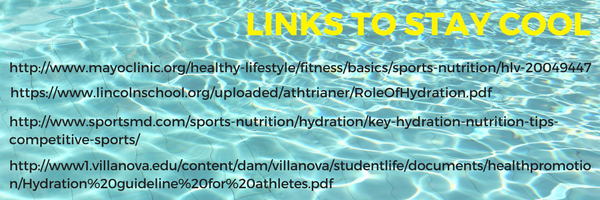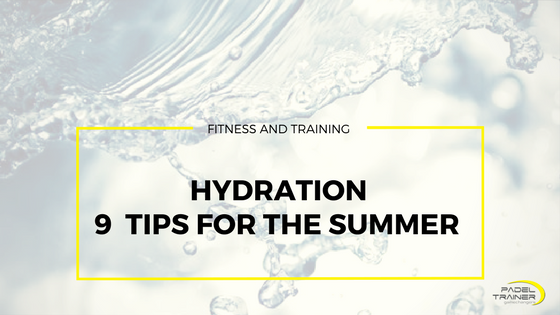Hydration for padel athletes, how much should be enough
Summer is on, long sunny days and nights that seem to be able to fit in all padel matches we can´t play through the year. Always sun in Marbella, and elsewhere in western Europe too. Just a reminder to keep us all well, very well, hydrated athletes we looked around the web, asked a few questions here and there to top physicians and trainers and made up our own version of what really means to be hydrated.
Each body is different and although studies have produced various recommendations over the years, water needs depend on many factors: your state of health, how active you are, where you live, and the physical strain you put your body to, especially in summer time. No single formula will fit everyone, but understanding a little more about your body´s need for fluids will draw us a better picture to estimate how much water to drink each day.
Prevention is the key to avoid dehydration before it even begins by drinking plenty of fluids before, during and after any workout.
Hydration tips
- Drink enough water to prevent thirst.
- For short-duration (less than 60 minutes), low-to-moderate-intensity activity, water is a good choice to drink before, during and after exercise.
- Any time you exercise in extreme heat or for more than one hour, supplement water with a sports drink that contains electrolytes and 6 percent to 8 percent carbohydrates. This prevents “hyponatremia” (low blood sodium), which dilutes your blood and could also lead to serious compromise.
- Begin exercise well-hydrated. Drink plenty of fluids the day before and within the hour before, during and after your exercise session.
- Avoid alcohol the day before or the day of a long exercise bout, and avoid exercising with a hangover.
- Consider all fluids, including tea, coffee, juices, milk and soups (though excluding alcohol, which is extremely dehydrating). The amount of caffeine in tea and coffee does not discount the fluid in them.
- Eat at least five cups of fruits and vegetables per day for optimum health, as they all contain various levels of water and the all-important nutrient potassium.
- During exercise, for those who experience high sodium losses, eat salty foods in a pre-exercise meal or add an appropriate amount of salt to sports drinks consumed during exercise. Orange juice is high in potassium. Dilute juices, such as V-8 or orange juice, 50/50 with water so that the drinks are 6 percent carbohydrate solutions (the same as sports drinks), which will empty from your stomach quicker than 100 percent juice (juices are naturally 12 percent solutions), allowing the electrolytes and water to quickly reach your heart and organs.
- Following strenuous exercise, you need more protein to build muscle, carbohydrates to refuel muscle, electrolytes to replenish what’s lost in sweat, and fluids to help rehydrate the body. Low-fat chocolate milk is a perfect, natural replacement that fills those requirements according to expert Katherine Tallmadge
As general rule of thumb one ought to consume 500ml per hour of vigorous exercise in addition to two liters per day. In practice, the need varies from person to person and the best thing to do is to measure yourself. This is quite easy to do with a simple test. One liter of water weighs one kilogram. By measuring your weight before and after training or a test event and correcting for any fluids taken in, you will get an individual rate of fluid lost for those conditions.
Want to know more? Check out the links we have selected, you never know when they might come in handy. Keep enjoying the summer matches with padel wisdom and plenty of hydration. And please, don´t forget to stretch after your training or match. It is SO important. we want you complete and ready for our next training.





